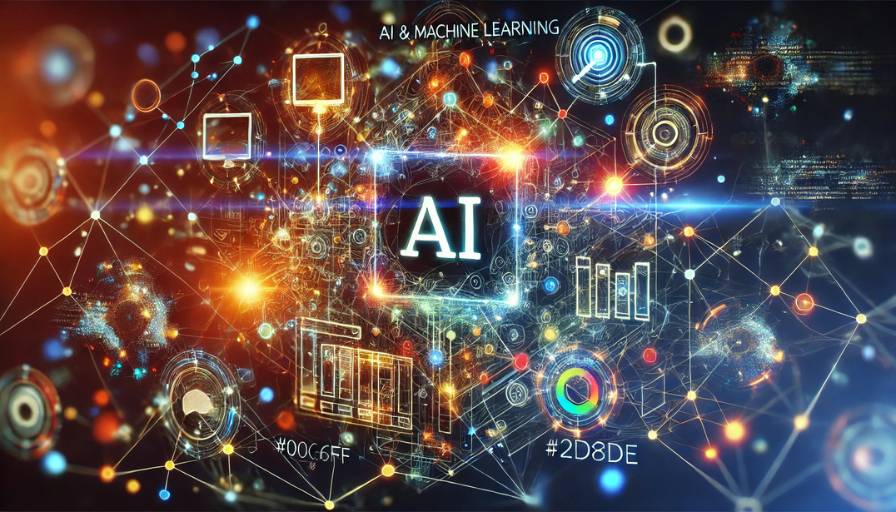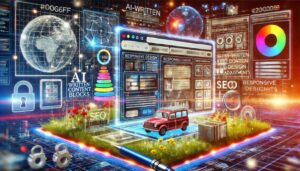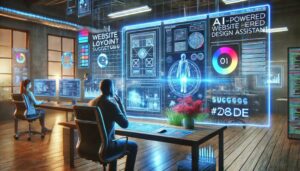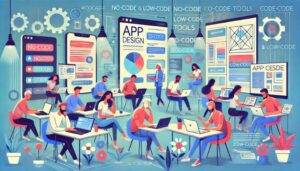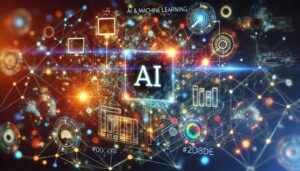Discover the Game-Changing Role of Artificial Intelligence and Machine Learning in Transforming Your Business Website
Table of Contents:
- Introduction: Why AI and ML Are Crucial for Modern Website Development
- 1. Enhancing Website Design with AI
- 2. Automated Content Creation and Personalization
- 3. Improving User Experience Through Predictive Analytics
- 4. SEO Optimization Powered by AI
- 5. Security Measures Enhanced by Machine Learning
- 6. AI in Website Performance Monitoring and Maintenance
- Conclusion: The Future of Web Development with AI and ML
Introduction: Why AI and ML Are Crucial for Modern Website Development
Artificial Intelligence (AI) and Machine Learning (ML) are reshaping industries across the board, including website creation and development. For small and medium-sized businesses (SMBs), these tools provide cutting-edge opportunities to build engaging, functional, and optimized websites that can significantly enhance user experience (UX) and operational efficiency.
This article explores how AI and ML can be integrated into your website development strategy, turning your online presence into a powerful business asset.
1. Enhancing Website Design with AI
Design is the cornerstone of any website, and AI tools like generative design software can help create stunning, user-friendly layouts.
- Automated Design Suggestions: Tools like Adobe Sensei or Wix ADI analyze your business needs, branding, and target audience to suggest tailored layouts. They save time by eliminating trial-and-error in design processes.
- Responsive Design Optimization: AI algorithms ensure that your website adapts seamlessly to various devices and screen sizes, maintaining usability across platforms.
- Aesthetic Analysis: AI can evaluate color schemes, font pairings, and overall balance in design, providing insights that align with your brand identity.
2. Automated Content Creation and Personalization
Content is vital for engaging your audience, and AI makes creating and tailoring content more efficient.
- Dynamic Content Personalization: Tools like ChatGPT or Persado analyze user behavior and preferences, generating personalized recommendations, email campaigns, or landing pages tailored to specific audience segments.
- Automated Blogging: AI-powered tools can generate blog posts on specific topics, maintaining a consistent posting schedule that boosts SEO while saving time.
- Multilingual Support: AI translation tools enable seamless multilingual site functionality, allowing your business to reach broader audiences.
3. Improving User Experience Through Predictive Analytics
AI and ML help predict user behavior, offering actionable insights to enhance the overall experience on your website.
- Behavioral Tracking: Machine learning models analyze visitor behaviors, such as click patterns or time spent on pages, to predict future actions.
- Personalized Navigation: By understanding user preferences, AI can suggest content, services, or products in real-time, guiding users efficiently toward their goals.
- Chatbots and Virtual Assistants: AI-powered chatbots like Tidio or Drift provide 24/7 customer support, answering queries and reducing response times.
4. SEO Optimization Powered by AI
Search Engine Optimization (SEO) is critical for visibility, and AI tools offer significant advantages in optimizing content and structure.
- Keyword Research: AI-driven tools like SEMrush or Ahrefs suggest high-ranking keywords based on your industry and target audience.
- Content Optimization: AI analyzes search trends and competitor strategies to recommend improvements to your content for better rankings.
- Voice Search Optimization: With voice assistants becoming more prevalent, AI helps tailor content for voice search queries, ensuring your site remains relevant.
5. Security Measures Enhanced by Machine Learning
Security is a top priority for any website. Machine learning models play a critical role in identifying and mitigating risks.
- Threat Detection: ML algorithms analyze traffic patterns to detect and block potential threats, such as DDoS attacks or phishing attempts, before they cause damage.
- User Authentication: AI-based facial recognition and behavioral biometrics improve login security, reducing the risk of unauthorized access.
- Automated Vulnerability Scanning: AI tools continuously scan your site for vulnerabilities, ensuring timely updates and patches.
6. AI in Website Performance Monitoring and Maintenance
AI-driven tools streamline website monitoring and maintenance, ensuring optimal performance.
- Real-Time Performance Tracking: AI monitors load times, server uptime, and overall site speed, providing insights to address bottlenecks proactively.
- Predictive Maintenance: Machine learning identifies potential issues before they escalate, such as increasing server loads or outdated plugins.
- Content Updates and Testing: AI tools suggest updates to outdated content and automate A/B testing, ensuring that your site remains relevant and effective.
Conclusion: The Future of Web Development with AI and ML
Integrating AI and ML into your website development process is not just a trend; it’s a necessity for businesses aiming to stay competitive in today’s digital landscape. From automated design and content creation to advanced security measures and performance tracking, these technologies empower you to deliver exceptional user experiences.
Whether you’re building a new website or upgrading an existing one, adopting AI and ML tools will future-proof your online presence, streamline operations, and position your business for long-term success.

